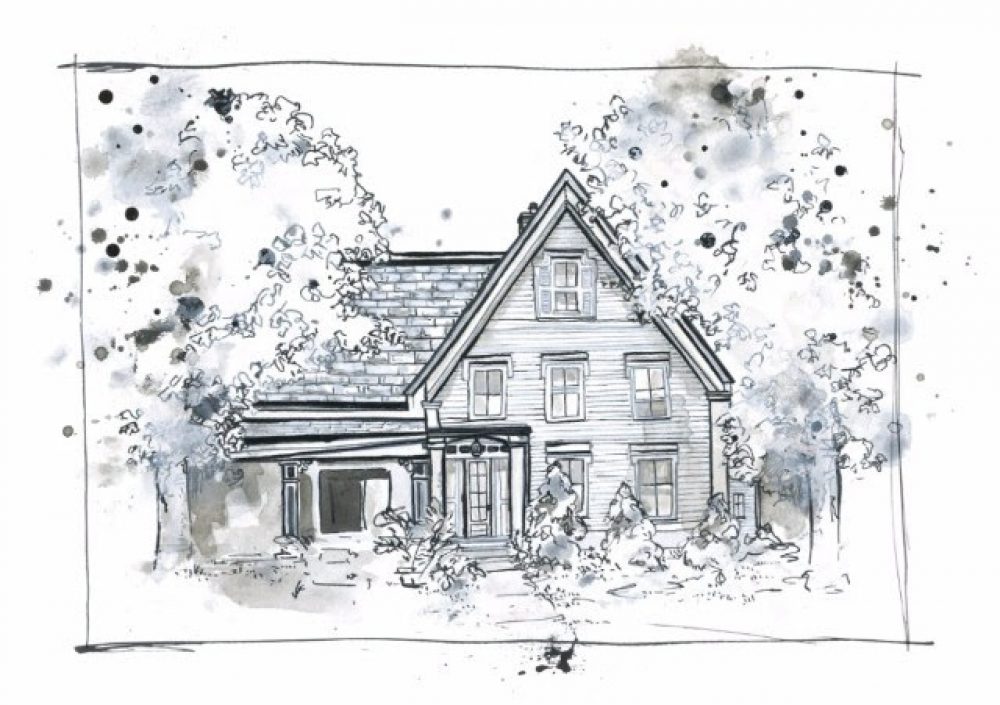Dear Milk Streeter,
The Bristol Herald Courier in Virginia ran a piece a few years ago about a woman who grew up in “Upper Poor Valley,” which is located near Saltville, Va. She was quoted in the article saying, "I was born before they had electricity come to Poor Valley," she said. "And we didn't know any better."
Lots of towns, many of them in Virginia and West Virginia, had “poor” and “rich” valleys. The singing Carter Family came from Poor Valley, and Dolly Parton was born in one in a two-room shack on the Little Pigeon River in East Tennessee. Edna Lewis was born in Freetown, Va., one of eight kids in a town founded by freed slaves. For my part, I remember neighbors in Vermont who lived with electricity but without indoor plumbing; there was a metal hand-pump in the kitchen sink and an outhouse down by the corn crib.
I was struck by the phrase, “We didn’t know any better.” It doesn’t mean that they weren’t smart enough to know the difference; it means that it didn’t make any difference. What my Vermont neighbors did have in place of money was a place to call home, hollows and hills with familiar names, noon dinner every day at the Yellow Farmhouse, molasses cookies as big as a butter plate, and an infinite supply of stories to get one through the winter when milking was the only outdoor activity. To this day, there is still Minister Hill and Swearing Hill facing across the valley. At the end of the main road in Beartown, there is Moffitt Hollow Cave, which is the source of a small stream that runs into the Green River. And there is Hamilton Hollow as well as roads named after former residents such as Wilcox Hollow Road, and even Chunks Brook named after Chief Chunks. The old Native American Cold Spring Camping ground is still there, a small pasture right near the brook itself. Our town’s charter was granted in 1761 with the proviso that pine trees “fit for masting our Royal Navy be carefully preserved for that use.” And tribute had to be paid to the Iroquois for hunting rights, a right that was part of the Hampshire Grants of 1761. (Our Vermont town was considered part of Hampshire at that time.)
Now, it may not be a badge of honor to grow up poor, and there is no point romancing a hardscrabble life after the fact. But there is something to be said for an outhouse, a pump in the sink, a wood-fired cookstove and a Holstein or Jersey 20 feet out back in a barn to provide the milk. I’m not quite sure how to judge whether growing up without amenities is a good thing, but those moments hold their value. Although I didn’t grow up poor myself, I remember our pigs breaking out around suppertime and running willy-nilly down the main road and the sight of smoke billowing up from the burning Vaughn barn from my vantage point high up in the Bartlett Lot on Red Mountain. You learn how to catch and cook a brook trout, a rabbit and then a buck when you get older. You freeze corn, pressure-can beans, tomato sauce and venison, and make your own jams and jellies.
The kitchen is a good place to learn the value of the ordinary, making do with what you have, using leftovers and calculating whether a 10-inch springform pan can substitute for a 9-by 13-inch baking dish in a pinch. You find out pretty quickly that the best food often comes from the simplest ingredients and least-equipped kitchen; a hand whisk and wooden spoon are pretty useful.
Maybe it’s just that we don’t really need much to be happy except being needed ourselves. A cook, a baker, a farmer—they get up every day knowing they’re useful. I’m beginning to think, that’s really all you need to know. And even if happiness is more complicated than that, growing up making do teaches self-reliance and enough patience to solve impossible problems. I always wonder what is going to happen when there is nobody left to actually do things—fix a furnace, stop a leak or pump out a basement.
And maybe growing up in Poor Valley, you get a better sense of who you really are. Dolly Parton once said, “Find out who you are. And do it on purpose.” (I once met Dolly in the green room at the Today Show. She was encouraging one of her backup singers who had stage fright. That’s class.)
And that’s why I come back to the kitchen. It’s hard to have illusions about who you are when dinner turns into a disaster, as it does eventually for everyone. You just have to clean up the mess, smile and move on.
Cordially,

Christopher Kimball




